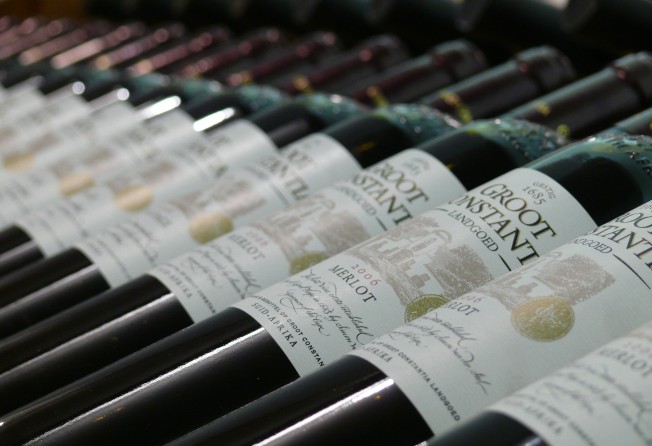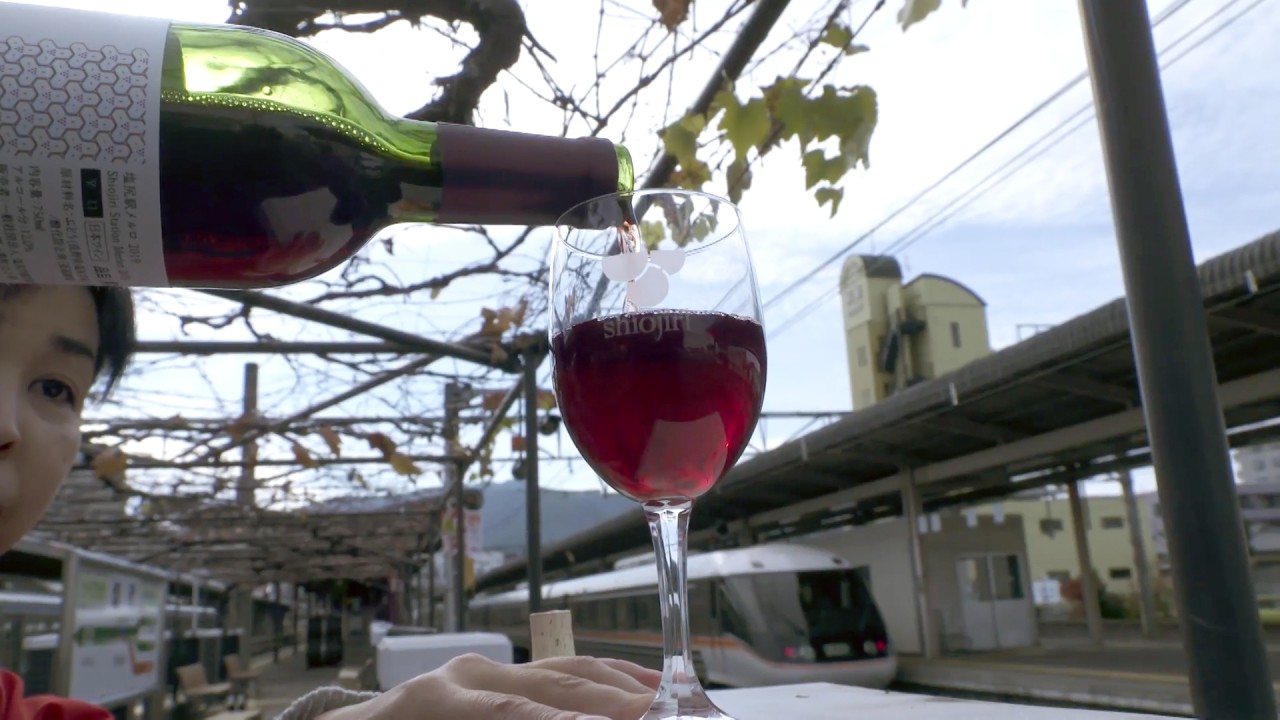China’s tariffs on Australian wine have South African exporters raising a glass to burgeoning market presence
- Ongoing trade dispute has seen an exodus of Australian wine from China, and a handful of importers ‘have gone completely to South Africa’
- The shift has also required ‘a big leap of faith’ for buyers to convince their customers to try wine from an unfamiliar destination

For wine importers like He Lei, the presence of South African wine in China could not have been more different this year compared with last year.
“I feel that South African wine brands are starting to work hard [in China] … just when there’s an exodus of Australian wine because of the trade tariffs,” said He, who runs a wine-importing business from Guangzhou. “Overall, I’d say the reception has been very good. Many of our clients are impressed with the taste and the quality.
“However, the price points are also higher.”
Importers say that South African wine had not, until recently, been widely available and marketed in China, especially compared with wine from Australia, Chile, France and Italy. But an ongoing trade dispute between China and Australia has opened up new opportunities for South Africa’s wine producers, including smaller and boutique brands.
Until late last year, Australian wine dominated the market in China. But that presence suffered a major blow in November 2020 when Australian wine was slapped with anti-dumping and anti-subsidy duties of more than 200 per cent, sending costs through the roof and prompting importers to seek alternatives.
“Some of them have gone completely to South Africa,” said Marcus Ford, Asia market manager for Wines of South Africa, an association that is responsible for promoting the country’s wine across China. “It’s been a big leap of faith for them to persuade their customers.”
Relations between China and Australia soured after Canberra called for an international inquiry into the origin of the coronavirus last year. As a result of the subsequent tariffs, the number of Australian exporters shipping wine to mainland China fell to 750 by the end of September, from 2,241 a year prior, industry group Wine Australia said this week, adding that wine exports to China plunged 77 per cent in the past 12 months.
Importers from wine-producing countries such as South Africa and Chile have been vying to carve out a piece of Australia’s old market share. China’s overall wine imports have yet to return to pre-pandemic levels, but its economic recovery this year has wine producers believing that business is looking up.
According to the China Chamber of Commerce of Foodstuffs, Native Produce and Animal By-Products (CFNA), China imported 211.9 million litres of wine during the first half of this year, down 1.55 per cent from 2020. In the first six months of 2019, China imported 315.41 million litres of wine.
Chile enjoys no import tariffs on wine sold to China thanks to their free-trade agreement, making Chilean wine among the most affordable in China.
Concha y Toro, the largest producer and exporter of wines from Latin America, with vineyards in Chile, Argentina and the United States, has said in its earnings reports that China was among the top drivers of its exports during the first six months of this year because of its strong recovery from the pandemic.
The Chile-based wine producer has been expanding its distribution in China since the start of the year to boost revenue and raise the company’s profile of its more premium offerings.
Meanwhile, China’s imports of South African wine jumped 192.8 per cent by volume from January to June – the highest increase compared with all countries, relative to the same period last year.
But despite its increased popularity, South African wine still accounted for just 2 per cent of the market share in China during the first six months of this year, up from 0.91 per cent over the same period in 2020 and from 1.05 per cent over the same period in 2019, according to CFNA data.
“South African wine has always been around in China, although the volume isn’t big,” said He, who was among the exhibitors at the China-Africa Economic and Trade Expo in Hunan province late last month.
“There is a lot of good-quality wine in South Africa, and I’d say it is comparable to those famous producers from France’s Bordeaux region, though it also has characteristics of New World wine.”
We have gained a bit because of Australia’s loss, but it’s unsettling to see what’s happened. It could happen to us, too
Top wine-producing countries France, Chile, Italy, Spain and Argentina have all gained market share in China this year. With 42 per cent of the market share, France took over from Australia, occupying the top spot, followed by Chile’s 20 per cent, Italy’s 10 per cent and Spain’s 9 per cent, according to data released by the China Association of Imports and Exports of Wine & Spirits.
Because of the high tariffs, Australia’s share of China’s wine market has plunged to just 7 per cent – way down from the 40 per cent it held during the same period last year.
Rudi Delport, sales manager for China at Axis Group International, which represents South African wine and spirits producer KWV, said that the trade tariffs on Australian wine have prompted some Chinese distributors – including those who had been exclusively selling just French wine or Australian wine – to diversify their offerings, rather than selling wine from only one country.
“I have seen some distributors taking on South African wine, Argentinian wine, Italian wine and Spanish wine,” Delport said.

01:58
Japanese train station releases Merlot wine from grapes grown on platform vineyard
South African wine exports to China could reach as much as US$35 million in 2021, according to Ford, and the total export value could increase to US$100 million in three to five years. South Africa exported 288 million rand (US$19.6 million) worth of wine to China in 2020, according to Wines of South Africa.
There is currently a 14 per cent tariff on South African wine imports to China, but Ford said the real challenge is raising awareness among Chinese consumers and importers that South Africa is, indeed, a wine-producing country.
“We spend a lot of time and effort introducing the country first, and then the wine,” Ford said. “In my view at least, you need to have some eureka moments with people to get them to understand that South Africa is a producer of high-quality wine.”
China’s fragmented retailing network means that first-time South African wine producers need to have a clear understanding of their Chinese partners’ strengths and weaknesses, according to Ford.
He estimated that 20 per cent of wine in China is sold via e-commerce; 20 per cent is available through traditional retailers such as supermarkets; and 60 per cent is sold through individual networks, including group purchases by companies, and sales to hotels and restaurants by local distributors.
Local distributors who rely on one big customer tend to place large, regular orders, but Ford said those networks are not always reliable. He pointed to changing tastes and government policies in buying and selling wine. For instance, Beijing’s anti-corruption drive, along with a broader austerity programme, has reduced demand for luxury goods in recent years, and that includes wine.
“There’s been a lot of extra attention [from South African wine producers] in China over the past 12 months because of the Australia situation – that’s understandable,” Ford said. “China’s never easy, but especially now without the opportunity to travel.”
According to a Beijing-based diplomat from a South American country that has seen a growth in its trade with China because of restrictions on Australian exports, businesses have become increasingly wary of political risks.
“Of course there are always risks in selling to China,” the diplomat said, declining to be named because of the sensitivity of the matter. “We have gained a bit because of Australia’s loss, but it’s unsettling to see what’s happened. It could happen to us, too.”